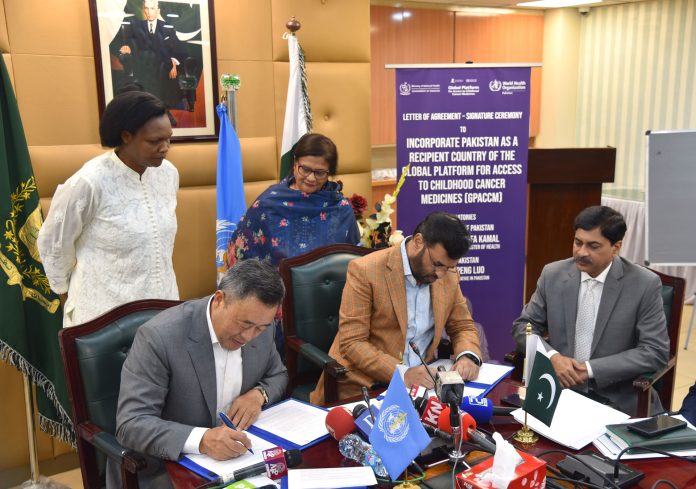Pakistan has officially joined the World Health Organization’s Global Platform for Access to Childhood Cancer Medicines, securing a pivotal agreement that guarantees free, quality-assured cancer treatments for roughly 8,000 children diagnosed annually across the country.
The agreement, signed by Federal Health Minister Syed Mustafa Kamal and WHO Representative Dr. Dapeng Luo, commits Pakistan to receiving essential pediatric cancer drugs through UNICEF procurement and WHO’s operational support until at least December 2027, with potential extensions.
Current pediatric cancer survival in Pakistan stands at just 30%. The partnership aims to raise that figure to 60% by 2030, making strides toward more equitable access to life-saving treatment nationwide.
Alongside the medicine initiative, the Ministry of Health also unveiled the National Cholera Control Plan 2025–2028, emphasizing a dual focus on treatment and preventive health measures.
WHO will continue to offer technical assistance, training, and resource support to Pakistan’s health authorities to build sustainable pediatric oncology infrastructure. UNICEF will manage supply logistics, ensuring medicines reach hospitals and treatment centers across the country.
Since childhood cancer survival rates in low- and middle-income countries remain below 30%, while in high-income nations they exceed 80%, this initiative represents a transformational milestone in Pakistan’s public health strategy.
By aligning policy, supply, and technical expertise, Pakistan and WHO are moving toward a future where no child dies due to lack of access to affordable cancer treatment.



Comments (0)
No comments yet. Be the first to comment!
Leave a Comment